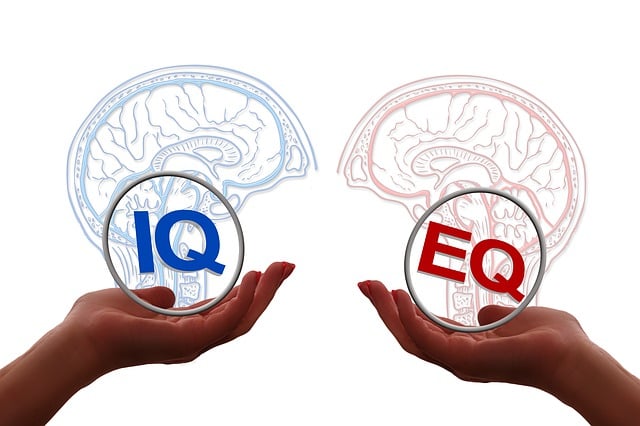
People frequently associate intelligence with solving challenging arithmetic problems, achieving high grades, or having book smarts. However, did you realize that intellect comes in various forms? Emotional intelligence (EQ) and intelligence quotient (IQ) are two of the most crucial. Being able to differentiate the two is likely to boost your relationships, education, and life in general!
Understanding IQ
Intelligence Quotient, or IQ, gauges your capacity for logical thought, problem-solving, and comprehension of difficult concepts. It is typically evaluated using standardized tests that evaluate abilities such as
IQ, or intelligence quotient, measures your ability to think logically, solve problems, and understand complex ideas. It’s usually tested through standardized exams that assess skills like
• Reasoning based on logic
• Arithmetic ability
• identification of patterns
• Retention and understanding
Individuals with high IQs frequently excel in math, science, and engineering. Though it can be crucial for academic achievement, IQ is not necessarily a reliable indicator of happiness or social skills.
Understanding EQ
Being able to identify, comprehend, and control your own emotions as well as those of others is known as emotional intelligence, or EQ. A high-EQ individual is frequently skilled at:
• Being aware of their own emotions
• Regulating feelings
• Having empathy for other people
• Having good communication
• Managing social circumstances with ease
EQ has a significant impact on leadership, teamwork, and friendships. When practiced and mindful, EQ can be enhanced, in contrast to IQ, which remains largely constant throughout life.
Why it is Important to Understand the Difference
The secret to success is striking a balance between IQ and EQ, yet both are significant. Here’s why.
• Social skills vs. grades: Even if you do well on tests, you may have trouble collaborating with your peers or comprehending your teacher’s criticism.
• Career Success: In addition to technical expertise, many organizations seek candidates who can collaborate well with others and efficiently handle pressure.
• Healthy Relationships: Emotional intelligence aids in resolving disputes and establishing solid bonds in friendships, family, and romantic relationships.
• Mental Health: Stress can be decreased and general wellbeing can be enhanced by comprehending and controlling emotions.
How to Boost IQ and EQ
To increase your IQ, reading more, working through puzzles, using critical thinking, and never stopping learning.
To boost Your EQ, develop your communication skills, be aware of your feelings, listen intently, and practice empathy.
Conclusion
Being “smart” involves more than merely slaying exams; it also involves knowing oneself and other people. You will be more equipped to handle the many problems of life, the workplace, and education if you work on improving both your IQ and EQ. Thus, never stop learning and developing, and never forget that intellect can take many different forms!


